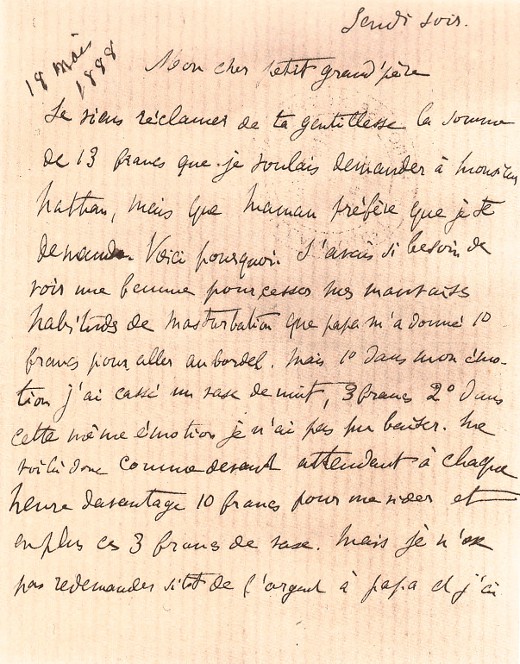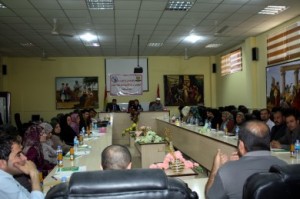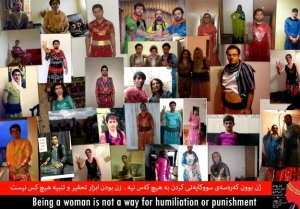Guest Post by Teresa A. Meade and Leila J. Rupp
Quite often, when we reflect on the field of women’s history and how it has developed over time, we use what the feminist scholar Clare Hemmings calls “progress narratives.” That is, we say that women’s history used to be all about white middle-class women, but now we are attentive to race, ethnicity, class, and other differences. Or we say that women’s history used to be dominated by scholarship on the United States, but now we attend to other places and think comparatively and transnationally. Or we say that women’s history used to be relentlessly empirical and atheoretical, but now we have incorporated the insights of poststructuralism, intersectionality, and gender theory. The twenty-fifth anniversary issue of the Journal of Women’s History gives us the opportunity to reflect on the trajectory of women’s history, not from the beginning, whenever that might have been, but certainly since the first Journal issue in 1989.
In addition to this celebration of the Journal’s first twenty-five years, we are happy to announce that a history of the JWH, researched and written by Jennifer Tomas, will be available online later this year at http://bingdev.binghamton.edu/jwh/. Tomas received her PhD from Binghamton University in 2012, and her dissertation, “The Women’s History Movement in the United States: Professional and Political Roots of the Field, 1922-1987,” made her a perfect candidate for the JWH history project. A web article, key documents, and video interviews with JWH founders, editors, and officers complement the articles in this issue.
So let us go to the beginning. Volume 1, issue 1, coedited by the founders, Christie Farnham and Joan Hoff, featured an article on Cherokee women; an article on conceptualizing the history of women in Africa, Asia, Latin America and the Caribbean, and the Middle East; a report on women’s history and feminism in China; reviews of teaching packets for integrating women’s history into courses on the Third World; and responses to a theoretical and methodological reflection, from the perspective of French feminism, on women’s culture and women’s power. The remaining two issues in volume 1 included articles on African American women and working-class history; on India, Iran, Argentina, Chile, and South Africa; and on Third World historiography, socialist-feminist U.S. women’s history, and reconceptualizing differences among women. In other words, the issues were not all about white middle-class women, did not focus exclusively on the United States, and were not atheoretical (although the statement of purpose in the first issue did critique the “problematic tendency for research on women to become increasingly relativistic and apolitical under the influence of poststructuralism”).
Looking back at the first volume is a useful reminder that the Journal of Women’s History from the beginning sought to recognize differences among women, to take a global view, and to open discussion of different theoretical perspectives. We reflect here, then, on the ways that women’s history has developed in the years since the Journal saw the light of day.
The anniversary issue begins with a conversation about the relationship between radical history and women’s history, bringing together scholars from across generations and fields of women’s history. The reflections of the participants remind us that the best women’s history has always woven together the threads of individual lives, collective action, and large-scale forces. And that women’s history began with an agenda: to analyze the past in order to understand the present and work toward a better future. The rest of the issue consists of articles we solicited on thematic and national or regional areas of women’s history, along with articles that deal with the various ways in which women’s history reaches beyond the university.
Compared to 1989, women’s history has transformed in terms of themes, approaches, and possibilities for disseminating our work outside the university setting, although we must take care not to exaggerate change and ignore continuity. We have expanded our reach into such areas as disability studies, transgender studies, and transnational history. The concept of intersectionality, so central to the field of women’s studies, has had a strong impact on women’s history, as many of the articles in this issue illustrate. If women’s history was never just about white, middle-class, Euroamerican women, since the publication of Kimberlé Crenshaw’s foundational article on intersectionality we have become more sophisticated in analyzing the ways that race, ethnicity, class, gender, sexuality, and disability interact at both the individual and societal level. Postcolonial theory, critical race theory, queer theory, and borderlands theory have added to the toolkit we as women’s historians bring to our work. The Internet and new media offer us new ways of teaching and researching. And over the last twenty-five years, women’s history, at least in some places, has shaped the field of history as a whole, engendering the “master” narrative and adding insight into the behavior, appraisal, and understanding of relations among people.
So where might we be headed in the next twenty-five years? We as historians are notoriously bad at thinking about the future, given our professional expertise in dwelling on the past. History as a discipline is also, compared to both the other humanities and the other social sciences (since history is arguably both), relatively slow to change. We still appreciate narrative—telling a good story—even as we embrace new theories and methods. Thinking about the last quarter century, the Journal of Women’s History has, we think, bridged the divide between women’s history and gender history and grappled with the relationships between experience and discourse, oppression and agency. JWH articles reflect increasing interdisciplinarity in incorporating theoretical insights from other disciplines. They also contribute historical perspective that is essential to women’s, gender, and feminist studies. It is our hope that this issue will not only document where we have been, but that it will help to open doors to the future of our field.
Teresa A. Meade is the Florence B. Sherwood Professor of History and Culture at Union College in New York. She is the author and editor of many books on Latin America and women and gender studies. She is a member of the Radical History Review Editorial Collective and President of the Journal of Women’s History Board of Trustees. Leila J. Rupp is a professor of feminist studies and an associate dean of the Division of Social Sciences at the University of California, Santa Barbara. She edited the Journal of Women’s History from 1996 to 2004 and currently serves on the Board of Trustees.





 The protest was small, but it speaks to larger rifts over privacy between the U.S. and Germany, where memories of the Stasi still linger. It's estimated that
The protest was small, but it speaks to larger rifts over privacy between the U.S. and Germany, where memories of the Stasi still linger. It's estimated that 




 Fans der legendären Rockgruppe The Doors trauern um Ray Manzarek. Der Keyboarder verstarb im Alter von 74 Jahren an einem Krebsleiden. Manzarek hatte die Band zusammen mit Jim Morrison gegründet.
Fans der legendären Rockgruppe The Doors trauern um Ray Manzarek. Der Keyboarder verstarb im Alter von 74 Jahren an einem Krebsleiden. Manzarek hatte die Band zusammen mit Jim Morrison gegründet.

























